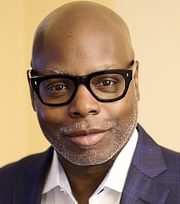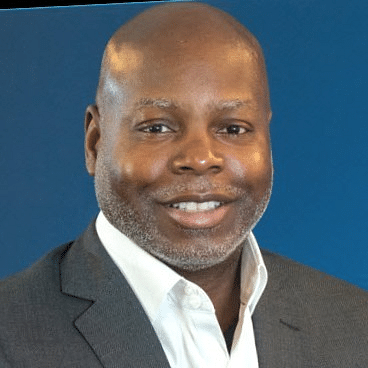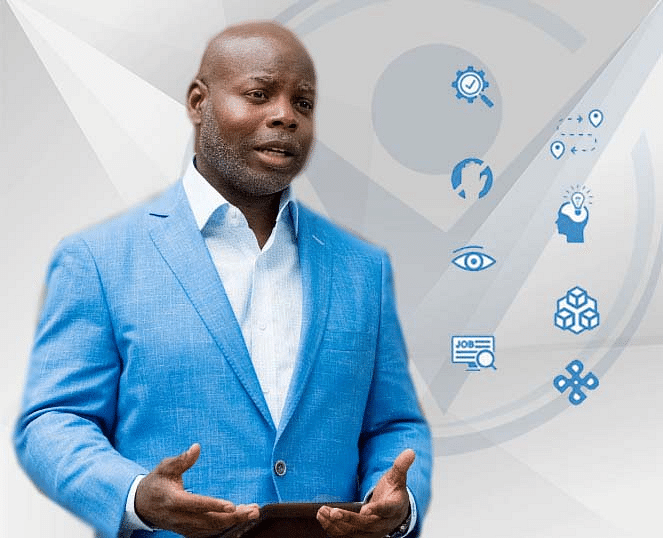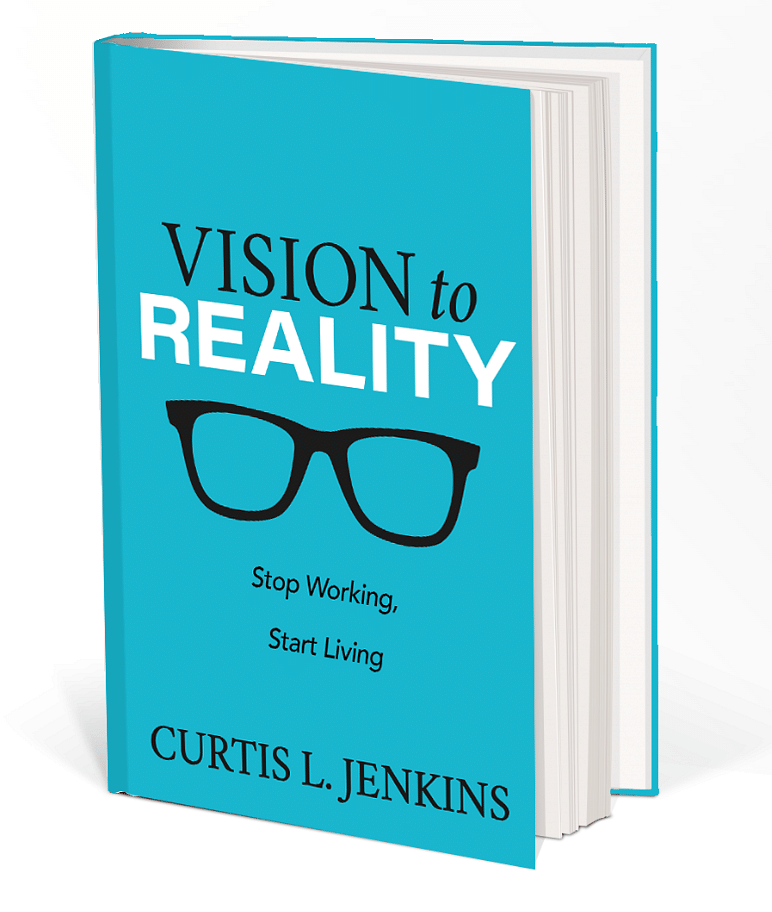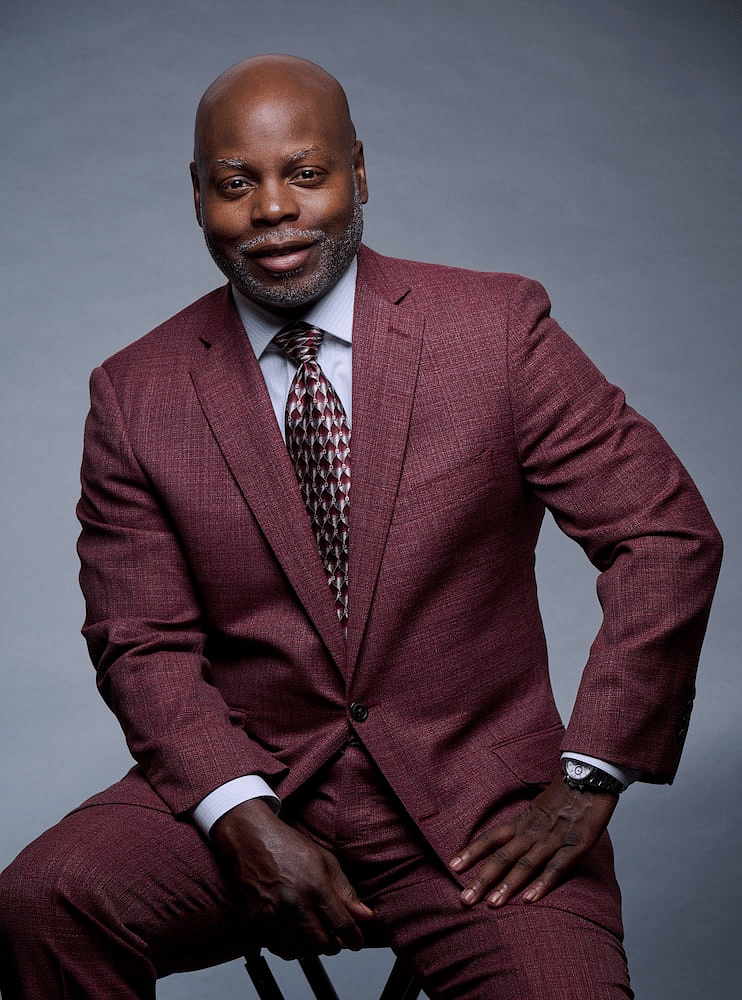
Curtis Jenkins' journey of wanting to be significant and building a personal brand offers key takeaways on how to get noticed
By Jim James, Founder EASTWEST PR and Host of The UnNoticed Entrepreneur.
In the newest episode of The UnNoticed Entrepreneur, business coach, author, and keynote speaker Curtis Jenkins talked about how one can go from being an underdog to being published and from being a business employee to being a business owner. He also discussed what you need to do to build a brand — and how he’s done that himself.
Image from LinkedIn
He considers himself somewhat born an entrepreneur but more so a teacher. He wants to teach others anything that he’s learned and experienced (e.g., growing up in a pretty tough working-class neighbourhood).
He’s tried his hand at several ways to do that back when he was helping people with their taxes through Jenkins Financial. Now, he’s helping small business owners who are trying to grow by teaching them everything he learned.
On Being Significant and Making an Impact
When talking about vision, Curtis thinks about it from success to significance. And he’s trying to be more significant. If he can help small businesses, which employ roughly 99% of the workforce in the world, he knows he will make an impact.
By working in the corporate and helping big businesses with growth, he learned some of the secrets of what they do: How they develop and execute strategies and plans. From a software developer, he himself became a project manager. He got to see how things turned from being a vision to being real.
He took all those elements and decided that he could also do it and help small businesses do it with those processes as well.
These businesses don't have the money and the staffing. They don't have a lot of things that a big business has an advantage of. But if you structure them right, they can become successful and make their visions a reality. It’s something that he learned about himself first, and then he realised that he could help others, too.
Curtis wanted to brand himself as the person who could do that because he’s had the experience and has a great temperament and attitude. With these and some persistence, he can help other entrepreneurs be successful.
Tapping Others for Essential Help
In his journey of becoming an authority amongst and providing strong support to entrepreneurs, the first thing that Curtis learned is that he didn’t know anything about marketing.
Image from Curtis Jenkins
He thought it would just be about going out and getting all those stationery materials and ensuring that you have logos and everything is matching and looking good. However, that didn’t translate into any new business. Then came the internet, social media, and all these other things to marketing. He thought he just needed to set up a social media page.
As he admittedly didn’t know anything about marketing, he spoke to several marketing firms. Through one referral, he was able to hire a marketing firm that sat down with him to help him understand how to create a brand strategy.
He followed what they told him to do. His skill is organising and bringing people together, and driving outcomes — not marketing.
Based on that experience, he recommends bringing somebody along who has that skill and will teach you how to do it.
Criteria for Hiring the Right Firm
In choosing the right agency, Curtis had a couple of criteria.
The first one was looking at who they’ve marketed and how they’ve done it, and asking the firm’s previous clients about the outcomes. As he went through that journey, he understood that if the firm can do it for those folks — and those folks are being well sought after — then the firm can do it for him, too.
Also, part of his criteria was to compare how much an agency costs versus how much their competitor costs. And it wasn’t just the amount of money going out; it was how the agency could create a return for him that was bigger than the other party.
This was how he landed on a firm that he thought would make him more popular and help him brand. He’s the type of person who will listen to someone if that person is the expert. But he also cares about getting the most return for the money going out because money's a scarce resource, especially for entrepreneurs.
Image from Unsplash
Most firms, however, can’t guarantee a return on investment (ROI). They’d say that building a brand takes time and is not the same as direct sales.
During Curtis's first contract with the firm he worked with, they asked him about what he considers successful outcomes. So he laid out things that must be done for him to consider their service successful. He started with the number of podcasts they can get him on. Then, the number of times he got hooked up with a publication (e.g., Forbes) to be a writer and how many articles he could pump out. The metrics also included how much social media they’d perform.
All these are metrics about things that would get him out there. Though they had a couple of bumps, those metrics helped him see that they could continue to do it. Theirs has become a continual relationship that moved onto one level after another.
Overcoming Inevitable Bumps
Curtis’ first entrepreneurial bump was when he created his first company.
His mission then was to teach people how to do their taxes, and he found out he wasn't getting the mission. He was trying to solve a problem that people didn't have. They wanted something else — having more money in their taxes, not learning how to do taxes.
Next, he had a management consulting company, and part of that company would source for other businesses.
When an issue happened with the primary company (all contracts had been frozen, and he was a hundred grand in), he had to take his 401k to save himself and his personal reputation and brand. Later down the road, he got some of that back through a class action lawsuit.
That was a painful experience for him. And he learned from that that when working with a team, you have to be clear on the outcome. Because if you're thinking you're going one way and they're going another, that could be a big problem. Go back and look at the contract and then right that wrong.
Image from Unsplash
Remember that you're going to have bumps — nothing will be linear. But you have to keep going.
‘Vision to Reality’
Curtis has written a book called “Vision to Reality: Stop Working, Start Living,” and it’s a textbook case of building a personal brand.
Prior to writing that, he wrote and self-published another book, “The Only Job Search Book You Will Ever Need.” There, he talked about his career and the issues that he had. It came from his wanting to teach others how to overcome obstacles.
When he was going to write his second book (initially about growing in your career and becoming an executive), he had a marketing team, and they interviewed him. They asked him questions that led to his management consulting side: How he helped entrepreneurs grow — starting with his friends — and how he came up with the process. Upon hearing that, they said it was the book he needed to write.
He agreed and signed on with them with a ghostwriter. He had his first publishing deal, and he was indeed happy. However, when he was reading the book, he realised that it didn’t sound like him. And he didn't want people who knew him to read that book and say, “That's not Curtis.”
And so he missed his publishing deadline by a year because he had to rewrite it to make it sound like him.
Many people think having a ghostwriter can be the solution if they are not naturally an author. When Curtis said the book didn’t sound like him, what was missing was how he talked.
He knows how he talks, and if he reads something that sounds like somebody else, he will start to picture someone else in his mind — not himself. The people who knew him who read the book can also immediately tell that it wasn’t him.
People all have their own styles. And you have to get other people to read what you write to help you understand that. When he did just that and asked his friends a favour to read his book, he realised that it wasn’t just him who picked that up.
Being authentic in terms of voice is a key part of his personal brand.
Image from Curtis Jenkins
Coincidingly, whilst writing the book, he joined a business accelerator group. He thought the members could help each other out and not just understand what other businesses went through. This led to him changing the original title of his book to “Vision to Reality: Stop Working, Start Living.” He wanted to make it more relevant.
A couple of things also happened, including him having new glasses (as seen on the book cover). That became his new brand, and people loved it.
Making that book and his new personal band wasn’t a straightforward journey. He had to keep going back and massaging and refining. It was many nights and weekends that he had to give up.
Takeaways From Building a Personal Brand
For Curtis, business is a team sport. And the key takeaway for him from his experience was getting somebody to help him with marketing.
The other is getting a business coach himself. He did that because he knew there could be blind spots. With the help of that business coach, he learned that his conversations with prospective clients were more about what he offers and less about their problems.
So he had to learn to talk to people to know more about them because it was not about him, his product, or his service. It's really about the person that he’s trying to serve. That was a big switch, and he needed somebody to help him understand that.
If you’re an entrepreneur, think about how you can leverage others to help you get where you’re going. Also, make sure you’re working with somebody who understands what your problems are and where you're trying to go. To do that, you really need to articulate what your outcome should be.
Image from Curtis Jenkins
Nothing that Curtis has tried has been seamless. Everything has had some bumps. And being a trained professional project manager, he learned how to look risk right in the face and keep going. He learned how to be creative.
Apart from imparting those lessons, he also advised developing some good habits yourself. As the saying goes, “People don't decide their futures, they decide their habits. And their habits decide their futures.”
Curtis has also lost a lot of money in some of the things that he’s done. One would think he would just want to stop, find a good job, and work. However, all that is part of the excitement of the journey.
You must be willing to stay persistent, learn lessons, and most, importantly, apply them. You have to apply those lessons and keep building. When you do that, you can find yourself creating these new mental muscles, and you grow. It’s almost like having children versus grandchildren. When your children spill red juice on your carpet, you lose your mind. But when your grandchildren do it, you just deal with it and clean it up.
To find out more about him, visit www.cljassoc.com. You can also connect with him on LinkedIn, Instagram, and Facebook. For his books, you can check out Amazon and Barnes and Noble.
This article is based on a transcript from my podcast The UnNoticed Entrepreneur, you can listen here.
Cover image by Khamkéo Vilaysing on Unsplash
